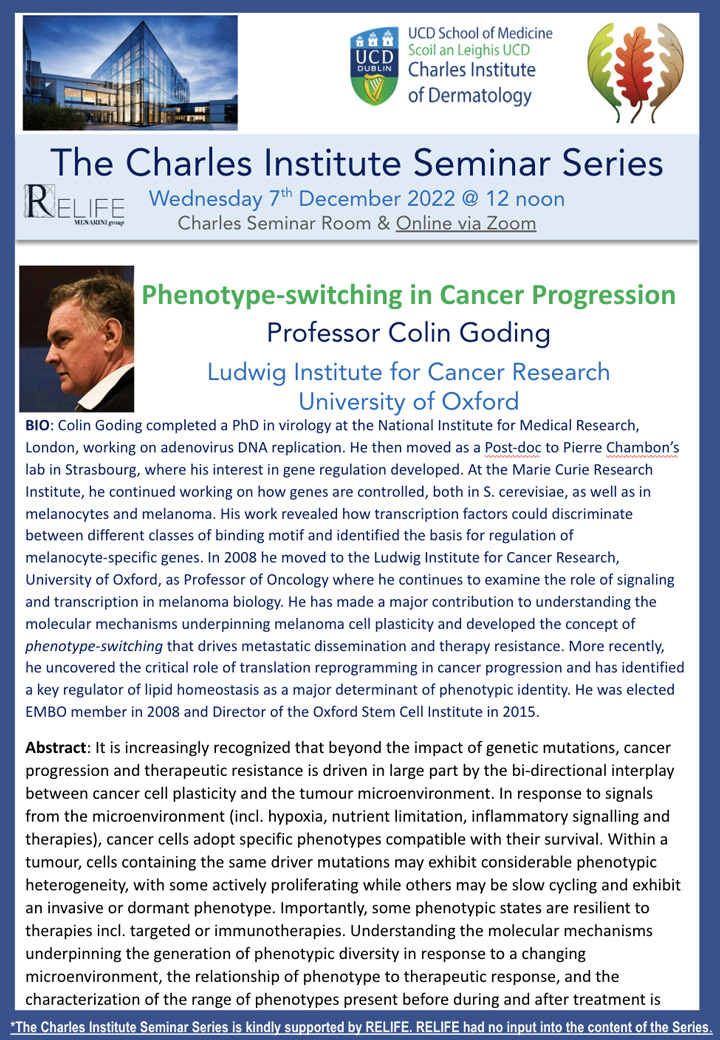Charles Institute Seminar Series 2022-23: Phenotype-switching in Cancer Progression with Guest Speaker Professor Colin Goding
Date of Talk: Wednesday 7th December 2022 @ 12 noon
Location: Charles Seminar Room / Online Via Zoom
Talk Title: Phenotype-switching in Cancer Progression
Speaker Details: Professor Colin Goding
Ludwig Institute for Cancer Research
University of Oxford
Short Biography: Colin Goding completed a PhD in virology at the National Institute for Medical Research, London, working on adenovirus DNA replication. He then moved as a Post-doc to Pierre Chambon’s lab in Strasbourg, where his interest in gene regulation developed. At the Marie Curie Research Institute, he continued working on how genes are controlled, both in S. cerevisiae, as well as in melanocytes and melanoma. His work revealed how transcription factors could discriminate between different classes of binding motif and identified the basis for regulation of melanocyte-specific genes. In 2008 he moved to the Ludwig Institute for Cancer Research, University of Oxford, as Professor of Oncology where he continues to examine the role of signaling and transcription in melanoma biology. He has made a major contribution to understanding the molecular mechanisms underpinning melanoma cell plasticity and developed the concept of phenotype-switching that drives metastatic dissemination and therapy resistance. More recently, he uncovered the critical role of translation reprogramming in cancer progression and has identified a key regulator of lipid homeostasis as a major determinant of phenotypic identity. He was elected EMBO member in 2008 and Director of the Oxford Stem Cell Institute in 2015.
Abstract for talk: It is increasingly recognized that beyond the impact of genetic mutations, cancer progression and therapeutic resistance is driven in large part by the bi-directional interplay between cancer cell plasticity and the tumour microenvironment. In response to signals from the microenvironment (incl. hypoxia, nutrient limitation, inflammatory signalling and therapies), cancer cells adopt specific phenotypes compatible with their survival. Within a tumour, cells containing the same driver mutations may exhibit considerable phenotypic heterogeneity, with some actively proliferating while others may be slow cycling and exhibit an invasive or dormant phenotype. Importantly, some phenotypic states are resilient to therapies incl. targeted or immunotherapies. Understanding the molecular mechanisms underpinning the generation of phenotypic diversity in response to a changing microenvironment, the relationship of phenotype to therapeutic response, and the characterization of the range of phenotypes present before during and after treatment is critically important if effective anti-cancer therapies are to be developed.
Here we use melanoma as a model to highlight how microenvironment-driven translation reprograming, an evolutionarily-conserved survival strategy, impacts the transcription programs underpinning phenotypic identity, disease progression and therapeutic response.
